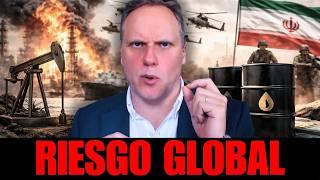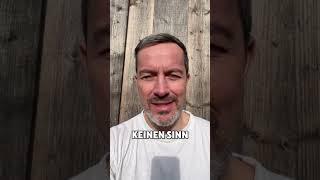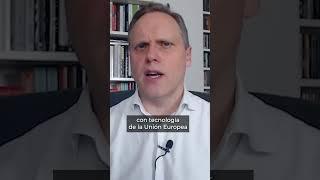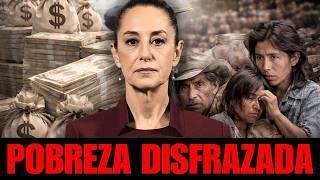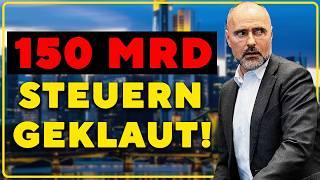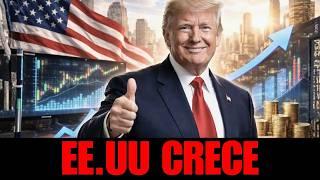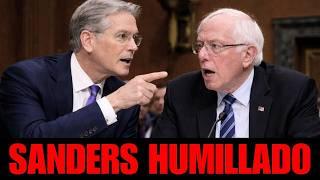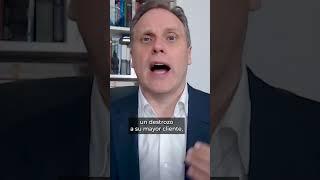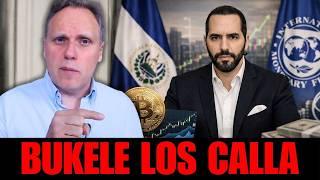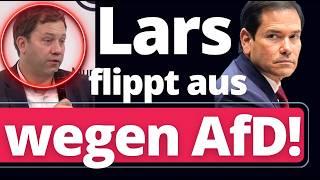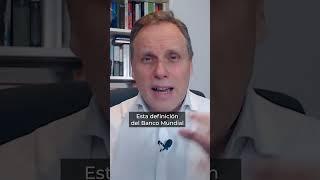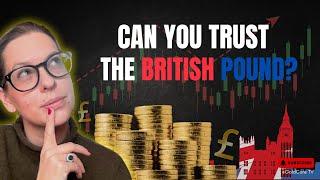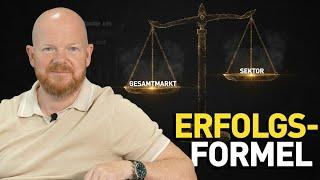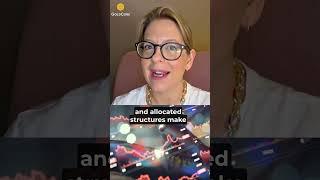Category Archive: 6b) Austrian Economics

¿Puede Irán HUNDIR la economía GLOBAL con el petróleo?
El miedo a una intervención en Irán dispara el petróleo, aunque sobra producción. ¿Riesgo real o puro pánico geopolítico?
Mi nuevo libro ya está disponible:
"El nuevo orden económico mundial: EE. UU., China, Europa y el descontento global" (Deusto)
☑ Amazon: https://amzn.eu/d/6wTTNJI
☑ Casa del libro: https://www.casadellibro.com/libro-el-nuevo-orden-economico-mundial/9788423438891/16782241
Te animo a suscribirte a mi canal y te...
Read More »
Read More »
The Challenge of Distinguishing History from Fiction
What happens when historical fiction becomes a more accurate portrayal than the version of history given by mainstream historians?
Read More »
Read More »
Stop Fighting Your Neighbor: The Mechanics of State Power and How to Opt Out
The modern state doesn’t get its power from the consent of the governed. Instead, it creates crises and then uses coercion to demand obedience.
Read More »
Read More »
Trump’s Keynesian Plan for Ukraine
President Trump’s plan to “rebuild” Ukraine following the destruction from warfare with Russia is a combination of Keynesianism and crony capitalism.
Read More »
Read More »
Epstein = Satoshi?
___________📅 Marc Lädt Ein 2026 ___________
✗ Erlebe den echten Austausch zu Finanzen, Politik und Gesellschaft. Zum vierten Mal lade ich ein zum "Marc Lädt Ein 2026" und du kannst dir jetzt eines der limitierten Tickets sichern! Entweder direkt vor Ort in der Motorworld Metzingen oder digital als Streaming-Ticket. Schnell sein lohnt sich!
https://www.marc-friedrich.de/mle26
___________💰 Investments & Vermögensschutz ___________...
Read More »
Read More »
In Support of the Austrian Business Cycle Theory
Critics of the Austrian Business Cycle Theory claim that capital investors over time will no longer be fooled by artificially-low interest rates triggered by central banks. However, when central banks push easy money policies, the inflation itself sets the ABCT pattern in motion.
Read More »
Read More »
EL ACUERDO ES POSITIVO PARA INDIA, NO PARA EUROPA
Mi nuevo libro ya está disponible:
"El nuevo orden económico mundial: EE. UU., China, Europa y el descontento global" (Deusto)
☑ Amazon: https://amzn.eu/d/6wTTNJI
☑ Casa del libro: https://www.casadellibro.com/libro-el-nuevo-orden-economico-mundial/9788423438891/16782241
Te animo a suscribirte a mi canal y te invito a seguirme en mis redes sociales:
☑ Twitter - https://twitter.com/dlacalle
☑ Instagram -...
Read More »
Read More »
State & Families: Friends or Foes?
Last week, I joined Fr. Robert McTeigue on the Catholic Current podcast to discuss birth rates and how government policy affects families and families formation.
Read More »
Read More »
Así Sheinbaum MAQUILLA la POBREZA en México
Sheinbaum presume récord de clase media, pero usa umbrales de pobreza extrema. Subsidios, inflación ignorada y propaganda oficial.
Mi nuevo libro ya está disponible:
"El nuevo orden económico mundial: EE. UU., China, Europa y el descontento global" (Deusto)
☑ Amazon: https://amzn.eu/d/6wTTNJI
☑ Casa del libro: https://www.casadellibro.com/libro-el-nuevo-orden-economico-mundial/9788423438891/16782241
Te animo a suscribirte a mi canal y...
Read More »
Read More »
Stop Fighting Your Neighbor: The Mechanics of State Power and How to Opt Out
The modern state doesn’t get its power from the consent of the governed. Instead, it creates crises and then uses coercion to demand obedience.
Read More »
Read More »
Deutschlands größter Finanzskandal: Wer wirklich hinter Cum-Ex steckt
In diesem Interview mit dem Kronzeugen Dr. Kai-Uwe Steck erfährst du, wie der größte Steuerraub der deutschen Geschichte wirklich funktioniert hat – wie Banken, Investoren und Politik gemeinsame Sache machten und warum andere Länder wie die USA oder die Schweiz das Modell sofort verboten haben … nur Deutschland nicht.
Kai-Uwes neues Buch "Der Cum-Ex-Kronzeuge": https://amzn.to/4tqPZhs
___________📅 Marc Lädt Ein 2026 ___________
✗...
Read More »
Read More »
NO TIENES LIBERTAD ECONÓMICA SIN TRANSPARENCIA FINANCIERA
Mi nuevo libro ya está disponible:
"El nuevo orden económico mundial: EE. UU., China, Europa y el descontento global" (Deusto)
☑ Amazon: https://amzn.eu/d/6wTTNJI
☑ Casa del libro: https://www.casadellibro.com/libro-el-nuevo-orden-economico-mundial/9788423438891/16782241
Te animo a suscribirte a mi canal y te invito a seguirme en mis redes sociales:
☑ Twitter - https://twitter.com/dlacalle
☑ Instagram -...
Read More »
Read More »
Epstein-Files: Das Ende unserer Eliten?
Die Veröffentlichung neuer Epstein-Dokumente sorgt weltweit für Diskussionen. In diesem Video werfen wir einen Blick auf die wichtigsten Inhalte, Hintergründe und offenen Fragen rund um Jeffrey Epstein, sein Netzwerk und die öffentliche Debatte. Eines ist klar - es ist unfassbar erschreckend!
Epstein-Files:
https://www.jmail.world/
___________📅 Marc Lädt Ein 2026 ___________
✗ Erlebe den echten Austausch zu Finanzen, Politik und Gesellschaft....
Read More »
Read More »
Estados Unidos CRECE con fuerza mientras la INFLACIÓN cae
EE.UU. crece al 4,4%, la inflación se modera y el empleo mejora. Los datos destruyen las previsiones de recesión y el relato anti-Trump.
Mi nuevo libro ya está disponible:
"El nuevo orden económico mundial: EE. UU., China, Europa y el descontento global" (Deusto)
☑ Amazon: https://amzn.eu/d/6wTTNJI
☑ Casa del libro: https://www.casadellibro.com/libro-el-nuevo-orden-economico-mundial/9788423438891/16782241
Te animo a suscribirte a mi...
Read More »
Read More »
Cum-Ex: Milliarden geklaut – jetzt spricht der Kronzeuge Dr. Kai-Uwe Steck
Das ganze Interview gibts am Sonntag um 18 Uhr auf meinem Youtube Kanal!
___________📅 Marc Lädt Ein 2026 ___________
✗ Erlebe den echten Austausch zu Finanzen, Politik und Gesellschaft. Zum vierten Mal lade ich ein zum "Marc Lädt Ein 2026" und du kannst dir jetzt eines der limitierten Tickets sichern! Entweder direkt vor Ort in der Motorworld Metzingen oder digital als Streaming-Ticket. Schnell sein lohnt sich!...
Read More »
Read More »
Warum ist Dirk nicht mehr im TV? 🤔 Mehr dazu auf meinem Kanal!
Warum ist Dirk nicht mehr im TV? 📺🤔
Früher regelmäßig eingeladen, heute kaum noch präsent. Mit der Zeit wurden seine Einschätzungen kritischer und passten immer weniger ins gängige Meinungsbild.
💡 Medien laden oft die ein, die ins Bild passen.
❓ Hast du das Interview mit Markus Lanz gesehen?
🎥 Mehr dazu auf der Plattform mit dem roten Play-Button @Cashkurscom
Read More »
Read More »
Scott Bessent EXPONE la hipocresía millonaria de Bernie Sanders
Los políticos culpan a los millonarios mientras gastan billones, crean déficit récord y empobrecen a la clase media.
Mi nuevo libro ya está disponible:
"El nuevo orden económico mundial: EE. UU., China, Europa y el descontento global" (Deusto)
☑ Amazon: https://amzn.eu/d/6wTTNJI
☑ Casa del libro: https://www.casadellibro.com/libro-el-nuevo-orden-economico-mundial/9788423438891/16782241
Te animo a suscribirte a mi canal y te invito a...
Read More »
Read More »









